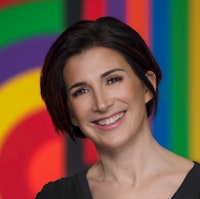
Before you got to kindergarten you were negotiating bed times and desserts. You grew and you expanded your sphere of influence.
Show Notes
Professor Zoe Chance, who teaches the most popular class at the Yale School of Management, illuminates the skills and strategies necessary to improve your natural ability to persuade.
Tell us what you think about this episode by taking this quick survey.
Explore
Related episodes


Looking around and experiencing the suffering and injustice in the world can make it difficult to believe that happiness exists. But the Judeo-Christian tradition teaches that it’s sinful to succumb to despair, and we have a responsibility to ourselves and others to try and find our way through dark times. On the other hand, when you avoid suffering, you avoid meaning, and...


Right when women feel like they have it all figured out, many of them enter a stage of life in our society where they feel dismissed, ignored and cast out. The pressure is strong to try and hold onto youth as long as possible via whatever means necessary, and shame tends to accompany all of the available options. How can we learn to embrace the inevitability of aging a lit...


We try our whole lives to avoid pain and suffering and when it does show up, we try to solve it. In her new book, No Cure for Being Human, religious scholar Kate Bowler says we try to out-eat, out-learn, and out-perform our humanness. Truth is, bad things do happen to good people and if we're going to tell the truth, we need one another. As someone who lives with cancer, B...


Though it can sometimes feel like conflict and discord is human nature, our brains are actually predisposed to forming groups and working together. In our individualistic society, we may think our minds stop at our skulls, but when people come together and connect effectively, they actually think in different ways, and they all become smarter and healthier together. Scienc...


So much of adult life is about learning the rules and then using those rules to navigate the world. We become certain that we know what we know — that we’re right, and we’re safer and more secure that way. But certainty, argues neuroscientist Beau Lotto, might actually be one of society’s biggest sources of emotional and physical unwellness. Certainty causes us to have les...







